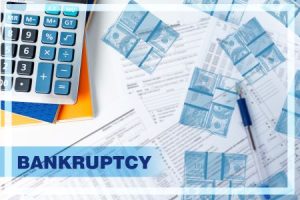What Happens In An Indiana Chapter 13 Bankruptcy?

During the coronavirus crisis, many homeowners took advantage of bank-offered mortgage payment deferrals. These programs end soon. When that happens, banks will most likely demand immediate payment of the past-due amount. Most families will have a hard time making a $15,000 or $20,000 mortgage payment, even if the bank generously gives them two or three months to come up with the money.
Homeowners have legal options in these situations. They could file civil lawsuits to stop foreclosure or try to negotiate a more favorable payment plan with the bank. Reaching out to a Chicago bankruptcy lawyer is probably a better idea. Bankruptcy stops foreclosure and gives your family a fresh start. Furthermore, a Chicago bankruptcy lawyer can unlock some advanced features which make mortgage payments more manageable.
Automatic Stay
The aforementioned civil lawsuits are difficult to win, unless the bank made an obvious mistake or there is clear evidence of fraud. Non-bankruptcy negotiations are not always effective either, mostly because the bank holds the best cards. So, if the bank threatens to take your house, Chapter 13 bankruptcy is probably your best option.
The Automatic Stay, which halts adverse actions like foreclosure and wage garnishment, usually takes effect as soon as debtors file their voluntary petitions.
Moreover, in a Chapter 13, the Automatic Stay remains in effect for up to five years. During this protected repayment period, debtors gradually erase home mortgage and other secured debt delinquency by making monthly, income-based payments. These terms are usually much more favorable than any bank would offer.
Typically, banks cannot continue to charge late fees or other fees during the protected repayment period. That fact alone could save you thousands of dollars.
Asset Protection
When people declare bankruptcy, the trustee (person who oversees the case for the judge) takes title to all nonexempt property. For the most part, trustees can liquidate nonexempt property at will, in order to pay off the petitioner’s debts.
This issue does not come up very often, because most people do not have nonexempt property. State and federal laws protect your:
- House,
- Car,
- Retirement account,
- Public benefits, like Social Security benefits,
- Private benefits, like child support receipts, and
- Personal property.
Many of these categories have value limits. An attorney can use some bankruptcy loopholes, like the as-is cash value rule, to make the most of these exemptions. For example, Jerry’s $5,000 TV might fetch about $500 at a garage sale. So, Jerry’s personal property exemption goes further.
Debt Discharge
Debt elimination is the final prong of the fresh start which the Bankruptcy Code guarantees. When a Chapter 13 ends, the judge erases your obligation to pay most unsecured debts, such as credit cards and medical bills.
Some unsecured debts, like the aforementioned child support obligation, are not dischargeable. An attorney can address matters like these in separate proceedings.
The distinction between secured and unsecured debts is not always black and white. For example, if the value of Yvonne’s home has declined, the bankruptcy judge might reclassify a home equity loan as a dischargeable unsecured debt. That move could save Yvonne thousands of dollars. The strip-off is just one of bankruptcy’s loopholes which an attorney can leverage for you.
Connect with Diligent Lawyers
Chapter 13 keeps creditors at bay and results in a fresh start. For a free consultation with an experienced bankruptcy attorney in Chicago, contact the Bentz Holguin Law Firm, LLC. Convenient payment plans are available.
consumerfinance.gov/coronavirus/mortgage-and-housing-assistance/help-for-homeowners/learn-about-forbearance/


